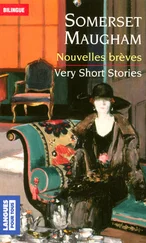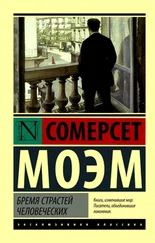| He was so young and had so few friends that immortality had no particular attractions for him, and he was able without trouble to give up belief in it; but there was one thing which made him wretched; he told himself that he was unreasonable, he tried to laugh himself out of such pathos; but the tears really came to his eyes when he thought that he would never see again the beautiful mother whose love for him had grown more precious as the years since her death passed on. |
Он был так молод и у него было так мало друзей, что бессмертие не очень его манило, и он мог расстаться с верой в него без сожалений; но одна мысль делала его глубоко несчастным: он ругал себя за безрассудство, смеялся над своей сентиментальностью, но слезы и впрямь выступали у него на глазах, когда он думал о том, какая красивая была у него мать, а он ее никогда уже больше не увидит, хотя любовь ее становилась для него с каждым годом все дороже и нужнее. |
| And sometimes, as though the influence of innumerable ancestors, Godfearing and devout, were working in him unconsciously, there seized him a panic fear that perhaps after all it was all true, and there was, up there behind the blue sky, a jealous God who would punish in everlasting flames the atheist. |
Иногда в нем просыпался голос множества набожных и богобоязненных предков, и его охватывал панический страх: а что, если все, чему его учили, все-таки правда и где-то там, в синих небесах, сидит ревнивый бог, карающий вечным пламенем безбожников? |
| At these times his reason could offer him no help, he imagined the anguish of a physical torment which would last endlessly, he felt quite sick with fear and burst into a violent sweat. |
В такие минуты рассудок был бессилен ему помочь: он живо представлял себе весь ужас физических страданий, которым не будет конца; он слабел от страха и покрывался холодным потом. |
| At last he would say to himself desperately: |
Тогда он твердил себе в полном отчаянии: |
| "After all, it's not my fault. |
"В конце концов я не виноват. |
| I can't force myself to believe. |
Не могу же я насильно заставить себя верить! |
| If there is a God after all and he punishes me because I honestly don't believe in Him I can't help it." |
Если бог все-таки есть и он накажет меня за то, что я искренне перестал в него верить,- тут уж ничего не поделаешь". |
| XXIX |
ГЛАВА 29 |
| Winter set in. |
Настала зима. |
| Weeks went to Berlin to attend the lectures of Paulssen, and Hayward began to think of going South. |
Уикс уехал в Берлин слушать лекции Паульсена, а Хейуорд стал подумывать об отъезде на юг. |
| The local theatre opened its doors. |
Местный театр начал давать представления. |
| Philip and Hayward went to it two or three times a week with the praiseworthy intention of improving their German, and Philip found it a more diverting manner of perfecting himself in the language than listening to sermons. |
Филип и Хейуорд посещали их два-три раза в неделю с похвальным намерением усовершенствоваться в немецком языке; Филип нашел, что это куда более приятный способ изучать язык, чем слушая проповеди. |
| They found themselves in the midst of a revival of the drama. |
Начинался расцвет новой драмы. |
| Several of Ibsen's plays were on the repertory for the winter; Sudermann's Die Ehre was then a new play, and on its production in the quiet university town caused the greatest excitement; it was extravagantly praised and bitterly attacked; other dramatists followed with plays written under the modern influence, and Philip witnessed a series of works in which the vileness of mankind was displayed before him. |
В репертуаре было несколько пьес Ибсена; "Честь" Зудермана - тогда еще новинка -взбудоражила тихий университетский городок; одни ее непомерно хвалили, другие ожесточенно ругали; прочие драматурги тоже писали в новом духе, и Филип увидел ряд спектаклей, разоблачавших человеческую низость. |
| He had never been to a play in his life till then (poor touring companies sometimes came to the Assembly Rooms at Blackstable, but the Vicar, partly on account of his profession, partly because he thought it would be vulgar, never went to see them) and the passion of the stage seized him. |
До сих пор Филип никогда не бывал в театре (в Блэкстебл иногда заглядывали жалкие странствующие труппы, но священник не посещал спектаклей, боясь осквернить свой сан и считая театр зрелищем для черни); теперь юноша страстно увлекся сценой. |
| He felt a thrill the moment he got into the little, shabby, ill-lit theatre. |
Переступая порог маленького, убогого, плохо освещенного театрика, он испытывал трепет. |
| Soon he came to know the peculiarities of the small company, and by the casting could tell at once what were the characteristics of the persons in the drama; but this made no difference to him. |
Вскоре он уже хорошо знал небольшую труппу и по распределению ролей мог заранее угадать характеры действующих лиц, но это его не смущало. |
| To him it was real life. |
Для него на сцене шла подлинная жизнь. |
| It was a strange life, dark and tortured, in which men and women showed to remorseless eyes the evil that was in their hearts: a fair face concealed a depraved mind; the virtuous used virtue as a mask to hide their secret vice, the seeming-strong fainted within with their weakness; the honest were corrupt, the chaste were lewd. |
Жизнь странная, мрачная и мучительная, в которой мужчины и женщины показывали безжалостному взору зрителя все зло, которое таилось у них в душе: за красивой внешностью гнездился разврат; добродетель служила маской для тайных пороков; люди, казалось бы, мужественные трепетали от малодушия; честные были продажными, целомудренные -похотливыми. |
| You seemed to dwell in a room where the night before an orgy had taken place: the windows had not been opened in the morning; the air was foul with the dregs of beer, and stale smoke, and flaring gas. |
Вас словно приводили в комнату, где прошлой ночью шла оргия; окна с утра еще не открывались, воздух был пропитан запахом прокисшего пива, табака и светильного газа. |
| There was no laughter. |
Тут было не до смеха. |
| At most you sniggered at the hypocrite or the fool: the characters expressed themselves in cruel words that seemed wrung out of their hearts by shame and anguish. |
Разве изредка усмехнешься над участью глупца или лицемера. Герои изъяснялись жестокими словами,- казалось, они исторгнуты из их сердец стыдом и страданиями. |
| Philip was carried away by the sordid intensity of it. |
Филипа увлекали эти низменные страсти. |
| He seemed to see the world again in another fashion, and this world too he was anxious to know. |
Он словно видел мир заново, по-другому, и ему не терпелось познать этот мир. |
| After the play was over he went to a tavern and sat in the bright warmth with Hayward to eat a sandwich and drink a glass of beer. |
После спектаклей они заходили с Хейуордом в пивную, где были свет и тепло, они съедали по бутерброду, запивая его стаканом пива. |

![Уильям Макгиверн - Завтра опять неизвестность [английский и русский параллельные тексты]](/books/35168/uilyam-makgivern-zavtra-opyat-neizvestnost-angli-thumb.webp)


